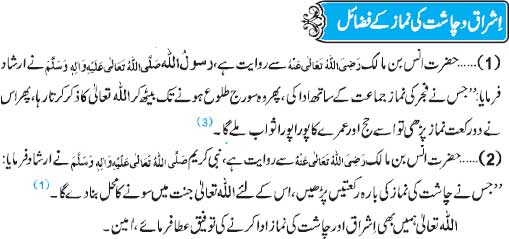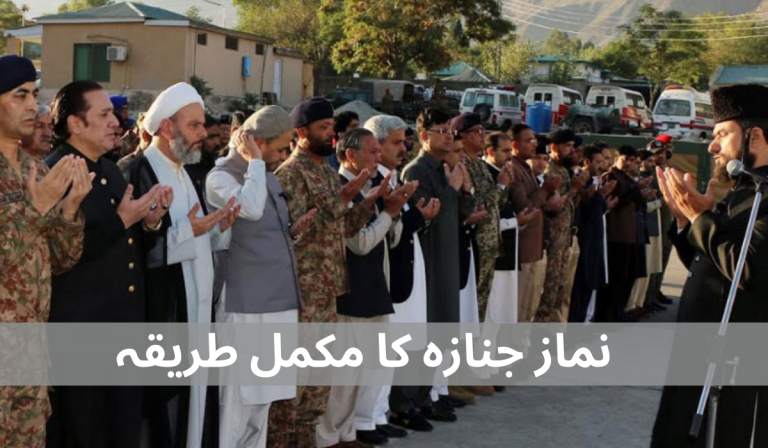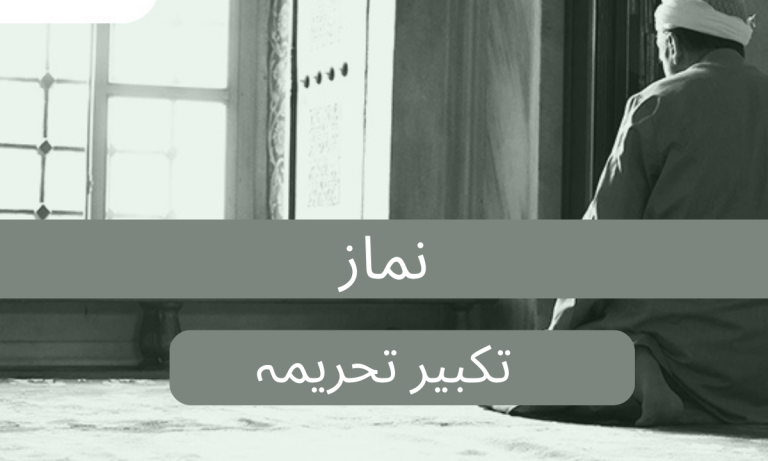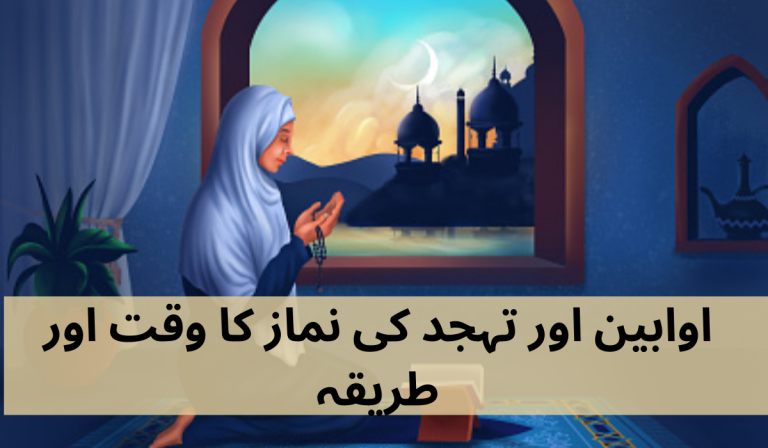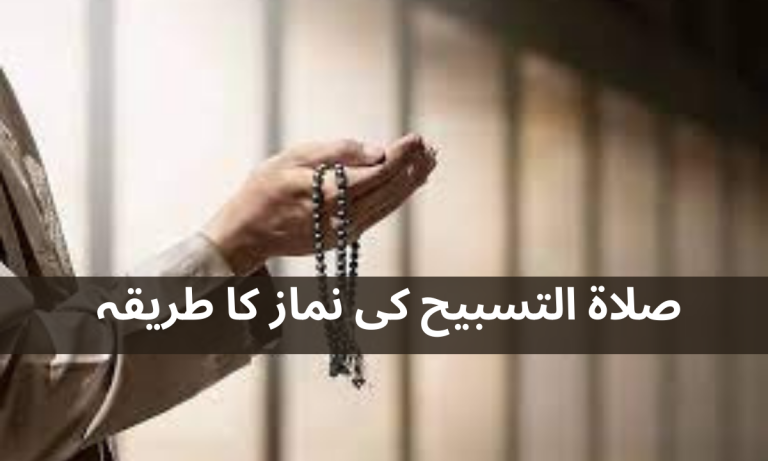Namaz E Ishra ur Chasht ka Tareeqa ur Waqt And Raqatain

Namaz E Ishra ur Chasht ka Tareeqa ur Waqt And Raqatain In English, “Namaz e Ishraq” refers to the “Duha Prayer” or “Forenoon Prayer,” while “Chast ka waqt” translates to the “Dhuhr (Noon) Prayer time.” Here’s a brief explanation of each:
-
Namaz e Ishraq (Duha Prayer or Forenoon Prayer):
- Namaz e Ishraq is a voluntary or non-obligatory prayer performed by Muslims during the forenoon, typically after sunrise.
- It consists of 2 to 8 Rak’ahs (units of prayer), and it is prayed with the intention of seeking Allah’s blessings and guidance.
- The time for Namaz e Ishraq starts shortly after sunrise and ends before the sun reaches its zenith (mid-morning). The specific timing may vary based on your geographical location and the season.
-
Chast ka waqt (Dhuhr Prayer time):
- Chast ka waqt refers to the time when the Dhuhr (Noon) Prayer is performed by Muslims.
- The Dhuhr Prayer is one of the obligatory daily prayers in Islam, and it is offered during the time when the sun begins to decline from its zenith (noon) until it casts a shadow that is equivalent to the length of an object (such as a stick or wall).
- The specific timing for the Dhuhr Prayer varies depending on your location and the time of year, as it is calculated based on the sun’s position.
It’s important to note that prayer times can vary based on your geographical location, so it’s recommended to consult with a local Islamic authority or use a reliable prayer time app or website to determine the exact prayer timings for your area.
The Number of Rakahs Of Namaz E Ishraq And Chast
The number of Rak’ahs (units of prayer) for Namaz e Ishraq and Chasht (Duha Prayer) can vary based on different schools of thought within Islam and individual preferences. There is flexibility in the number of Rak’ahs, and it is considered a Sunnah (voluntary) prayer, so you can pray a minimum of 2 Rak’ahs and increase them if you wish. Here’s a common breakdown:
-
Namaz e Ishraq (Duha Prayer or Forenoon Prayer):
- The most common practice is to pray 2 Rak’ahs for Namaz e Ishraq.
- However, some people may choose to pray more, such as 4, 6, or 8 Rak’ahs, in sets of 2 Rak’ahs each.
-
Chast (Dhuhr) Prayer:
- The Chast (Duhr) Prayer is one of the obligatory prayers in Islam and consists of 4 Rak’ahs.
It’s important to note that the number of Rak’ahs for voluntary prayers like Namaz e Ishraq can vary among different Islamic traditions and personal choices. Some people prefer to pray a specific number of Rak’ahs based on their convenience or spiritual devotion. The key is to maintain consistency in your practice and to perform the prayer with sincerity and devotion.
method or procedure for performing Namaz e Ishraq and Chasht
The Tariqa (method or procedure) for performing Namaz e Ishraq and Chasht (Duha Prayer) is relatively straightforward. Here’s a step-by-step guide for each prayer:
Namaz e Ishraq (Duha Prayer or Forenoon Prayer):
- Intention (Niyyah): Begin with the intention (niyyah) in your heart that you are performing the Ishraq prayer for the sake of Allah.
- Preparation (Taharah): Ensure you are in a state of ritual purity (wudu).
- Time: Namaz e Ishraq is prayed after sunrise, approximately 15-20 minutes after sunrise. You can consult your local prayer timetable for the exact ti
- me.Number of Rak’ahs: Most commonly, people pray 2 Rak’ahs for Ishraq, but you can pray more if you prefer.
- Prayer Units (Rak’ahs): Each Rak’ah consists of the following:
- Takbir-ul-Ihram: Begin with the opening takbir, saying “Allahu Akbar” and raise your hands to your ears.
- Qira’at (Recitation): After the takbir, recite Surah Al-Fatihah and any other Surah or verses of the Quran that you prefer.
- Ruku (Bowing): Bow down, placing your hands on your knees while saying “Subhana Rabbiyal Azeem.”
- Sujood (Prostration): Go into prostration, placing your forehead, nose, both palms, both knees, and toes on the ground.
- Tashahhud: After rising from the prostration of the second Rak’ah, recite the Tashahhud (a specific supplication) while sitting.
- Salam: Conclude the prayer by turning your head to the right and saying “As-salamu ‘alaykum wa rahmatullah” to both sides.
- Dua (Supplication): After completing the prayer, you can make personal supplications (dua) to Allah for your needs.
Chasht (Duhr) Prayer:
- Intention (Niyyah): Begin with the intention (niyyah) in your heart that you are performing the Chasht prayer for the sake of Allah.
- Preparation (Taharah): Ensure you are in a state of ritual purity (wudu).
- Time: The Chasht (Duhr) prayer is performed after the sun has passed its zenith (noon), and the shadow of an object is equal to its length. The exact time can vary based on your location and season, so consult your local prayer timetable.
- Number of Rak’ahs: Chasht prayer consists of 2 or 4 Rak’ahs. You can choose to pray 2 Rak’ahs followed by 2 more, or simply 2 Rak’ahs if you prefer.
- Prayer Units (Rak’ahs): Each Rak’ah consists of the following, similar to other obligatory prayers:
- Takbir-ul-Ihram
- Recitation of Surah Al-Fatihah and another Surah or verses of the Quran
- Ruku
- Sujood
- Tashahhud
- Salam
- Dua (Supplication): After completing the Chasht prayer, you can make personal supplications (dua) to Allah for your needs.
Remember that these are general guidelines, and it’s essential to follow the specific practices and traditions of your Islamic school of thought or the guidance provided by your local mosque or Islamic scholars if there are variations in the way these prayers are performed.
Benefits Of This
The voluntary prayers of Namaz e Ishraq (Duha Prayer) and Chasht offer several spiritual and potential worldly benefits according to Islamic tradition and teachings. While the primary motivation for performing these prayers is seeking Allah’s pleasure and blessings, believers may also experience personal benefits, including:
1. Increased Spirituality: Regularly performing these voluntary prayers can enhance your connection with Allah and strengthen your spiritual awareness.
2. Forgiveness of Sins: The Prophet Muhammad (peace be upon him) is reported to have said that performing Duha and Ishraq prayers leads to the forgiveness of sins. This can serve as a means of seeking Allah’s mercy and forgiveness.
3. Barakah (Blessings): Many believers experience increased blessings in their daily lives as a result of consistently offering these prayers. It is believed that Allah’s blessings accompany those who are diligent in their worship.
4. Peace of Mind: Engaging in these prayers can provide a sense of inner peace and tranquility, helping to alleviate stress and anxiety.
5. Improved Focus and Productivity: Starting your day with Ishraq prayer can help you feel more focused and productive throughout the day, as it sets a positive and spiritually uplifting tone for your morning.
6. Increased Gratitude: These prayers encourage believers to express gratitude to Allah for the blessings in their lives, fostering a sense of contentment and thankfulness.
7. Charity (Sadaqah): Offering voluntary prayers like Duha and Ishraq is considered a form of charity (sadaqah) in Islam, and it is believed to be rewarded by Allah.
8. Strengthened Relationship with Allah: Regularly performing these prayers can strengthen your relationship with Allah and serve as a means of drawing closer to Him.
It’s important to remember that while these benefits are mentioned, the primary motivation for performing any act of worship in Islam should be sincere devotion to Allah and a desire to please Him. The intention and sincerity with which you perform these prayers are of utmost importance. Additionally, the specific benefits experienced by individuals may vary, and the spiritual rewards are believed to be granted by Allah according to His wisdom and mercy.
conclusion
Namaz e Ishraq (Duha Prayer) and Chasht (Duhr) Prayer offer numerous spiritual and potential worldly benefits for believers in Islam. These voluntary acts of worship not only strengthen one’s connection with Allah and seek His forgiveness but also promote inner peace, gratitude, and a sense of blessing. They have the potential to enhance focus, productivity, and overall well-being, while also serving as an opportunity for charity and a means to draw closer to the Creator. Ultimately, the practice of these prayers embodies devotion, seeking Allah’s mercy, and cultivating a deeper spiritual connection.
